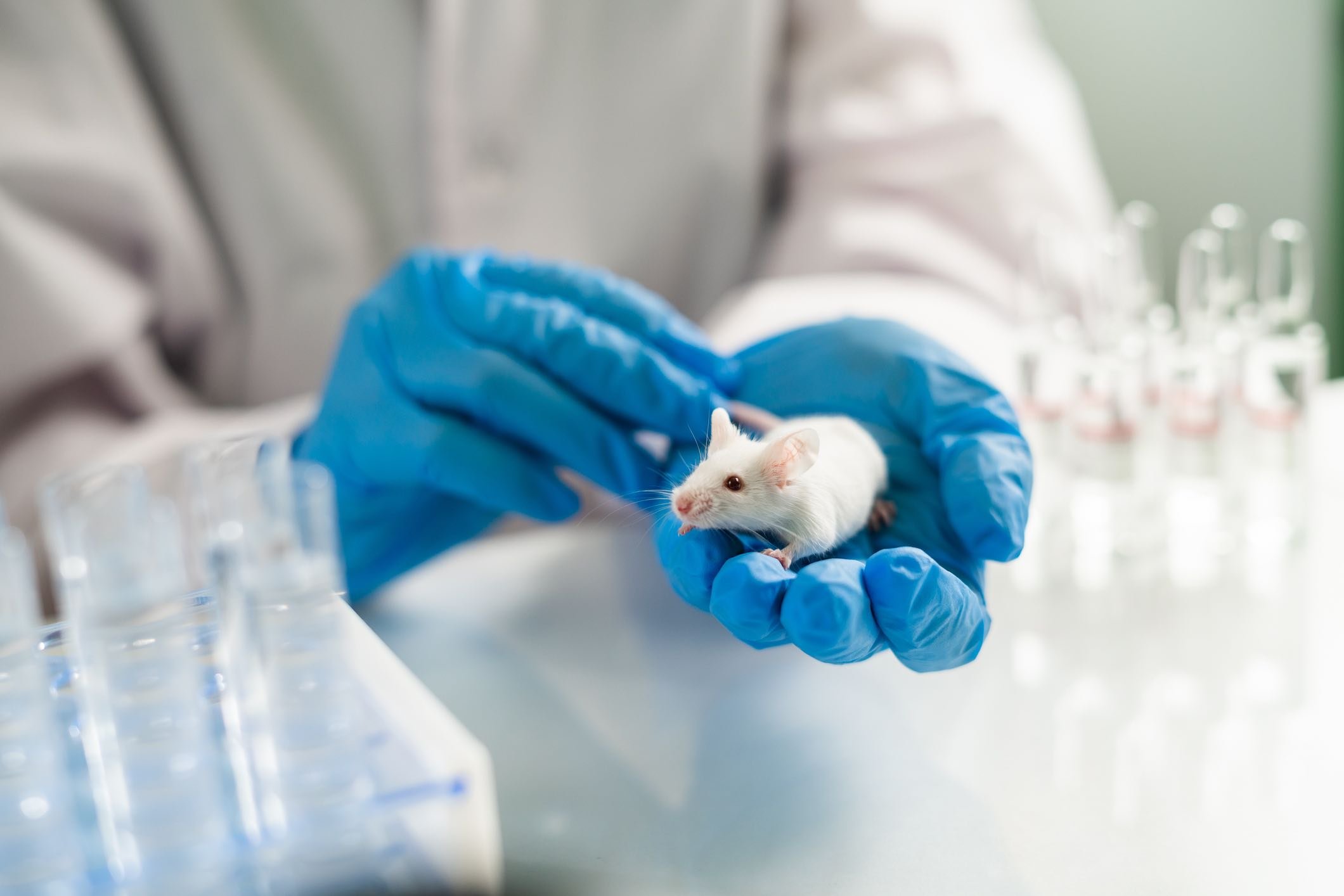Veterinary Oncology Technician Careers

Medical research involving animals saves countless lives, and today’s standard of care for cancer would not exist without these crucial studies. Animals are biologically similar to humans and susceptible to many of the same health issues. Additionally, because animals have a shorter life cycle than humans, they can be more easily studied throughout their lives and across generations. For these reasons and others, animals play a vital role in helping scientists understand how cancer progresses in a living, breathing, whole-organ system, allowing them to test promising new cancer therapies for safety and effectiveness.
Moffitt Cancer Center strongly supports animal welfare, and our researchers view their work with animals as a privilege. We are committed to ensuring the well-being of the animals in our care, and we strictly adhere to all applicable federal and state laws, regulatory guidelines and humane principles.
The experienced and compassionate veterinary technicians in Moffitt’s Comparative Medicine Core support the lifesaving work of our scientists—and contribute directly to our cancer-fighting mission—by ensuring the highest standards of veterinary care for our research animals. Our specialized facility is fully equipped with advanced medical and surgical equipment, allowing our veterinary team to provide comprehensive research support and oncology care.
What does a veterinary technician do at Moffitt?
A typical day for a veterinary technician at Moffitt might involve:
- Patient care – Monitoring and caring for research animals, which may include administering medications, chemotherapy and other treatments prescribed by veterinarians
- Diagnostic testing – Collecting samples (blood, tissue, etc.) and performing or assisting with diagnostic tests to monitor the health and progress of research animals
- Surgical support – Assisting veterinarians during surgical procedures, ensuring that all equipment is prepared and sterile
- Recordkeeping – Maintaining detailed medical records for research animals, which may include documenting treatments, procedures and observations
- Research assistance – Collaborating with researchers and veterinarians on research protocols and ensuring that all procedures comply with ethical and regulatory standards
- Animal welfare support – Ensuring the well-being of research animals, providing enrichment and monitoring their health and behavior
What credentials and qualifications are required to become a veterinary technician at Moffitt?
To become a veterinary oncology technician at Moffitt, a candidate must earn a Bachelor’s degree from a program accredited by the American Veterinary Medical Association (AVMA) and complete six years of veterinary technician experience, including three years in a research facility. Alternatively, the candidate can earn an Associate’s degree from an AVMA-accredited program and complete eight years of veterinary technician experience, including three years in a research facility. The candidate must also pass the Veterinary Technician National Examination (VTNE).
Preference is given to veterinary technician candidates who have earned the Laboratory Animal Technologist (LATG) certification by the American Association for Laboratory Animal Science.
What are the career options for a veterinary technician at Moffitt?
As a National Cancer Institute-designed Comprehensive Cancer Center, Moffitt is nationally recognized for our groundbreaking research. We continue to lead the way in unraveling the complexities of cancer and applying the insights we gain to its prevention and cure.
At Moffitt, veterinary technicians have several career options:
- Clinical care – Providing veterinary care to research animals, including monitoring their health, administering treatments and assisting with surgeries
- Research support – Working closely with researchers to implement and manage research protocols, ensuring ethical and regulatory compliance
- Specialization – Pursuing further specialization in veterinary oncology or a related field to become an expert in a specific type of cancer care
- Management and leadership – Advancing into a supervisory or managerial role within the Comparative Medicine Core, overseeing other technicians and coordinating veterinary care operations
- Education and training – Guiding new veterinary technicians and students, sharing expertise and promoting best practices in veterinary oncology care
Join us in our lifesaving mission
As a veterinary technician at Moffitt, you will help ensure the health and well-being of research animals while supporting groundbreaking cancer studies. Apply now, and contribute to our vision of a world without cancer.
